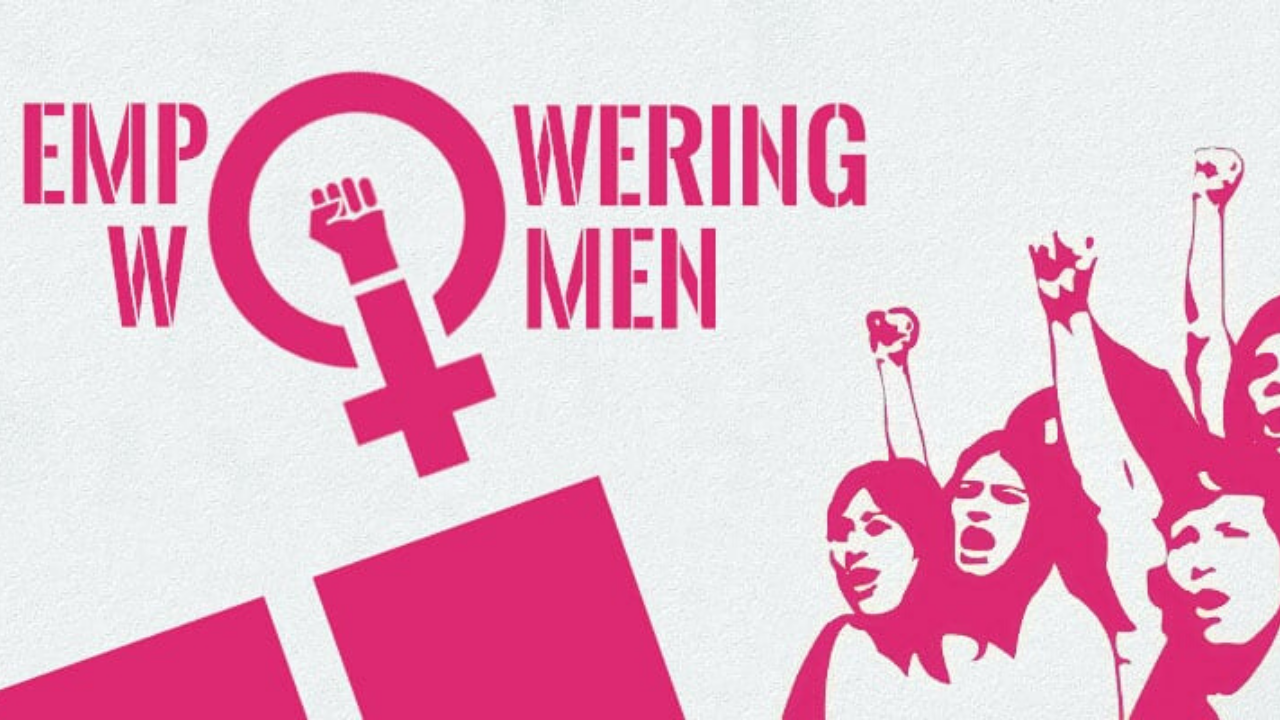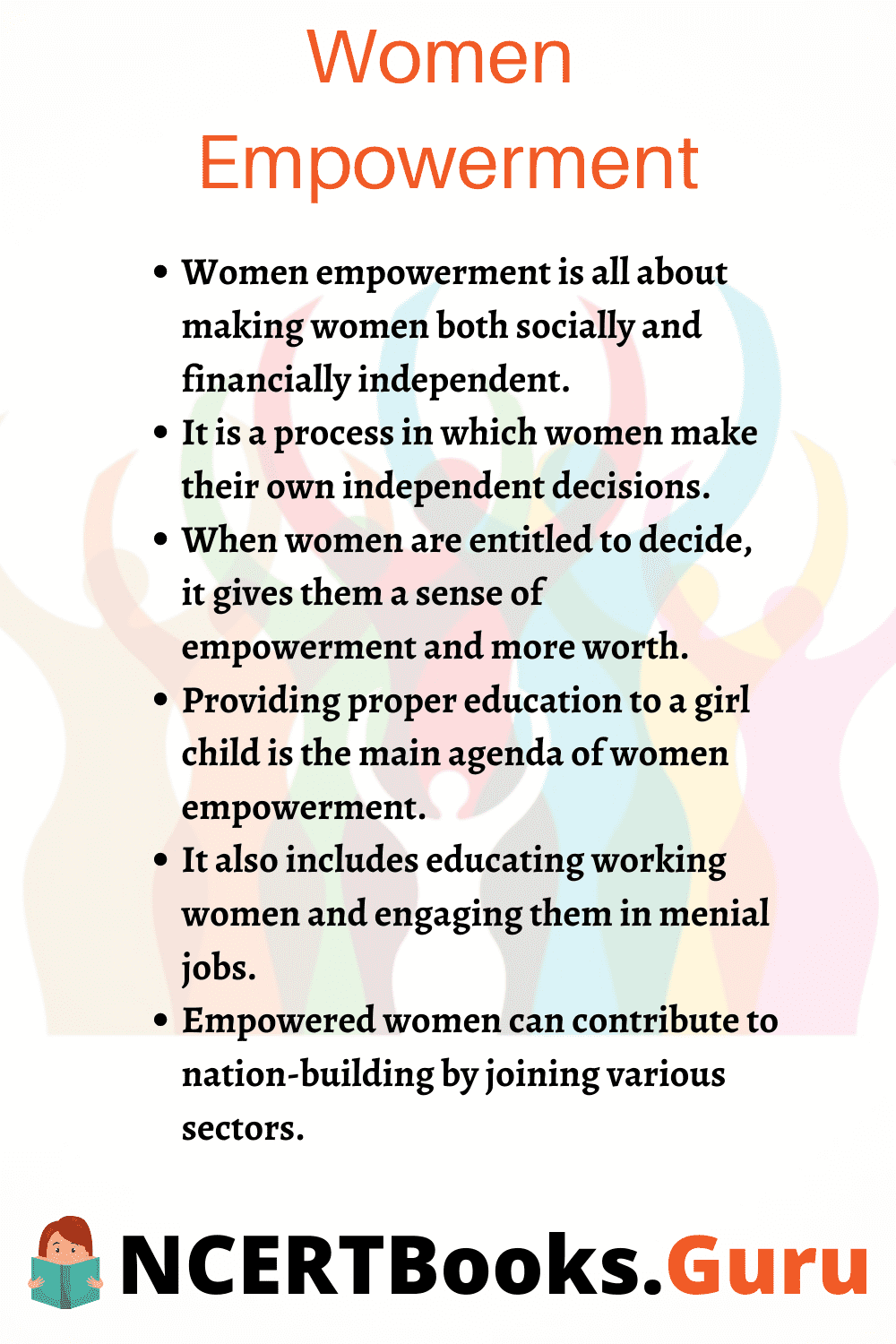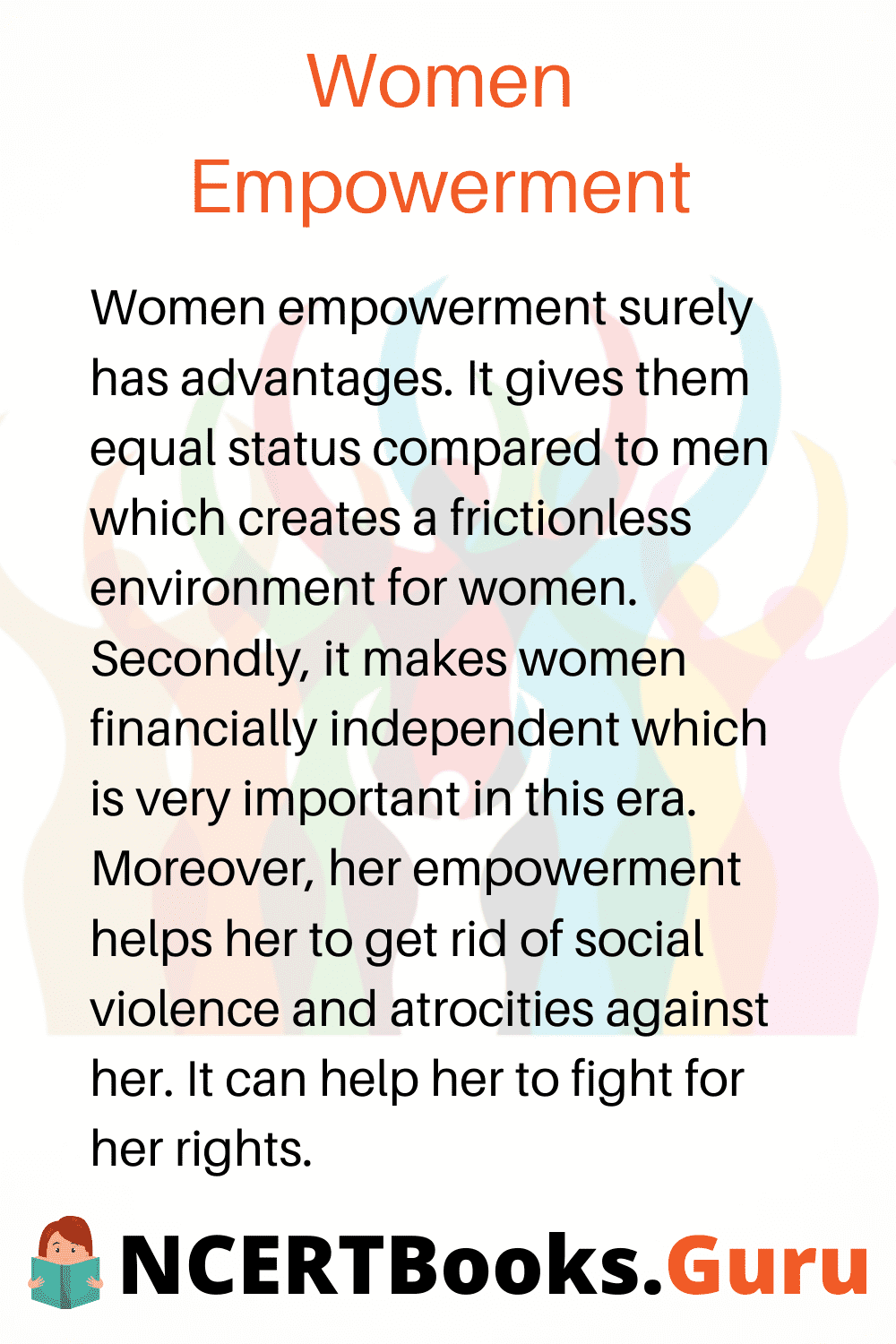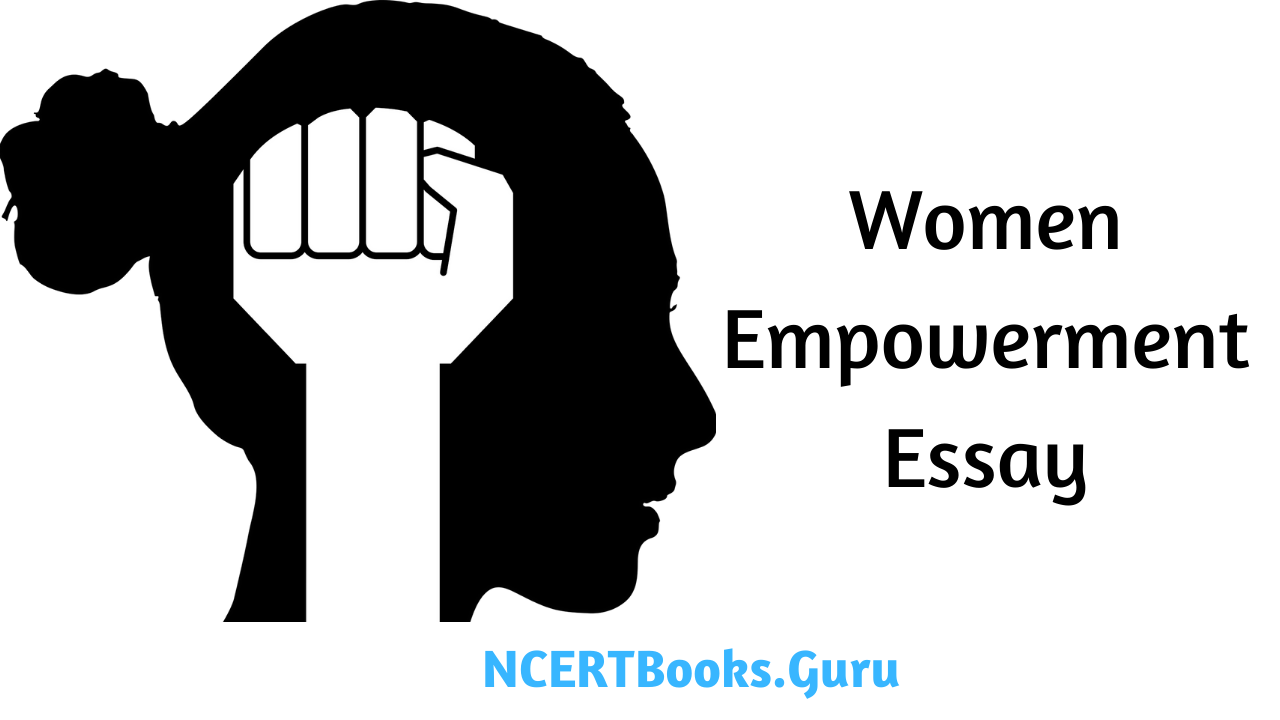Women Empowerment Essay: A solemn prayer by a saint. A dream which he wished transforms into reality for his entire nation. His nation marched on to achieve independence and embarked on a mission of growth and prosperity. However, several heads continued to be obscured by veils of discrimination and fear held captive the minds. These were the ‘women of his nation and our motherland still struggles to break such chains of social fragmentation.
“Where the mind is without fear and the head held high.
Into such heaven, My father, let my nation awake.”
Where women are prayed, God prefers to stay: So goes an old religious saying. In the context of India, then how optimistic should we be about God’s presence? How far have we been, as an independent, democratic, sovereign nation, to ensure a parallel path for gender development? Is it not yet the time to bring forward the means – the instrument to undo this unjust subjugation? Reservation may not be the panacea, but certainly, an apt means to remedy this divide across the diversities of our nation.
- Long Essay on Women Empowerment 600 Words in English
- Short Essay on Women Empowerment 200 Words in English
- 10 Lines on Women Empowerment
- What do you mean by Women Empowerment?
- What is the importance of Women Empowerment in India?
- What is the aim of Women Empowerment?
- How can Women Empowerment be achieved?
Long and Short Essays on Women Empowerment for Students and Kids in English
In this Essay on Women Empowerment, we have provided two different essays with different but useful content in each of them. Long Essay on Women Empowerment with a word limit of 600 and another short Essay on Women Empowerment in English with a word limit of 200. Both these essays can be used by students of class 6, 7, 8, 9 and 10 for an essay writing competition, test, exam, and holiday assignment.

Long Essay on Women Empowerment 600 Words in English
Women Empowerment Essay is usually given to classes 7, 8, 9, and 10.
Indian society has traditionally been a patriarchal society: A society where men turned the financial wheels and women were confined to drive the household wheels. The structure could adjust in the times. But times change and changing times bring their demands and limitations. The relevance and vitality of any structure are only justified by the ease with which it can adapt and remain dynamic. Alas, the Indian, society, and the male-dominated, orientation could not overcome the inertia with ease.
As members of the emerging economic giant, it becomes essential that both genders contribute and benefit from the growth of the nation. However, women in India, continue to suffer from the burden of social norms, traditions, and definitions. It is an irony that globally considered as an epitome of strength, love, and care women are still ‘the weaker sex’ in our society. Irony nevertheless, it is a shame as well.
The Constitutional frames showed acumen by inserting positive discrimination to raise the participation of women. However, the male-dominated politics of generations have yielded breathing space to women, ever so slowly. A revolution of sorts was thereby achieved when the historic 73rd and 74th Amendment Act, through Reservation ensured representation of women in grass root levels of democracy. Reservation as a tool is a means to ensure representation. It creates space. It, may not be sufficient, but undoubtedly an essential step to bring forth a segment which has been socially subjugated for ages. Women reservation is a crying call of the society to empower women and make them partners in all spheres in true sense.

From times of Safi and Jauhar to the need of being assertive and demanding, Indian women have seen a long journey – from an era of uplift and emancipation to the need for empowerment today. Reservation provides a solution to lend a voice to I women of the nation and can be removed once women achieve a position of coequals in society.
The political empowerment of women has made a modest beginning at Panchayats and Municipality level. With a recent increase in the reservation to half, women will achieve a better say in policymaking and implementation. However, party politicking at the national level has not yet allowed the Women Reservation Bill to see the light of the day. Different theories are floated for its’ opposition. While some argue that reservation should be on basis of constituency, others demand reservations in ticket distribution by the parties. The logjam has stupefied the voice of women, in the process.
Political empowerment will radiate gender sensitiveness in policies and increase awareness about rights at the grass root. Women’s needs, problems, and issues will be highlighted in forums and discussions, only when women in sufficient numbers manage to reach such forums. Reservation will provide the initial thrust to overcome the social barrier and resistance. Reservation in major employment schemes and in political bodies will enhance the earning capacity of households.
The economic empowerment of women could drive houses away from the evil grip of poverty on a sustainable basis. As a contributor, to the better standard of living of the family, the lady can then hold her head high. Economic empowerment also provides a shield against ill-treatment and abuse that women in both rural and urban India have grown habitual to. As an earning member, capable of sustaining herself, she will break the threads of traditional dependence on the male. On equal footing, she can demand her rights, assert herself, and be recognized. Several women in urban India have witnessed such empowerment in recent decades and reservation could further add to this growing strength in number.
The ability of the women to plan judiciously and run the household is recognized globally. The self-help group (SHG) movement also relies on the uprightness of women and this judicious use for saving and productive purposes will enhance when they earn their own money. Reservation will compulsorily bring out women from their households to explore avenues of growth and utilization of their skills. A huge reserve of talent has been untapped. A skillful segment has remained untouched from being part of the workforce of this nation. Reservation will help in aligning these energies for the progress of the nation.
Empowered women will enrich the civil society of the nation and will drive the virtuous cycle to work for a more disadvantaged lot. This social empowerment will help them take a proactive part in aligning some distortions of society. Women will then find a voice against eve-teasing and insensitivity in urban areas. They can better handle the crusade against female foeticide and thereby rectify the demographic imbalance.
Reservation in forces would not only tap the talent of women in combat skills but also generate healthy competition in male-dominated arenas. This will augur well for the sensitivity of forces an account of constant criticism in the recent past. More gynecologists, specialists, and medical practitioners will truly drive in a fair distribution of human resources of the nation.
The aim to bring in a reservation is to enthuse dynamism in Indian society. By active participation of women; nation-building will be smoother, equities, and more rapid. Reservation, however, should remain the vehicle and not the destination. The caution, in exercising this approach lies in protecting against usurping of this vehicle. In name of women representation, dummy figureheads are threats, which can derail the effectivity of this means. Male counterparts actively wielding power, in name of elected wives, have spoiled the spirit in several areas.
Another concern, due to the inherent stratification of the Indian social mosaic is the cornering of benefits by influential, rich, and dominant. It is here that other supplementary and equally crucial elements have to step in and support reservation. An efficient administration and high level of awareness driving people participation should condemn and cremate such practices.
Students can find more English Essay Writing Topics, Ideas, Easy Tips to Write Essay Writing, and many more.
Short Essay on Women Empowerment 200 Words in English
Women Empowerment Essay is usually given to classes 1, 2, 3, 4, 5, and 6.
Women empowerment is a journey the Indian bandwagon has begun, though slowly and hopefully steadily, to win the race. The fight has to be fought on several fronts – but most critical is on the attitudinal front. Men must accept the strength I and the talent of women and provide that crucial space for harmonious existence. With a woman as the head of state and another as the speaker of People’s House, India should set an example in empowering women.
Women of this nation have brought laurels and global recognition in diverse fields. Be it Kalpana Chawla or Saina Nehwal, Kiran Desai or Indira Noori, Mrs. Indira Gandhi, or Lata Mangeshkar Idols galore for Indian women. The need of the times demands them to be proactive members of the changing times. They should utilize the ladder of reservation and shine beyond in all hues of their talent and enigma. The story of any nation is often judged by glancing at the standard of empowerment of its women. It is high time that governance in our nation accepts this and proactively involves the synergy from this segment. It is, thereby; time to project the ‘better halves’ as the ‘better half on the national level.

10 Lines on Women Empowerment
- Women empowerment is all about making women both socially and financially independent.
- It is a process in which women make their own independent decisions.
- When women are entitled to decide, it gives them a sense of empowerment and more worth.
- Providing proper education to a girl child is the main agenda of women empowerment.
- It also includes educating working women and engaging them in menial jobs.
- There shouldn’t be gender discrimination and equal opportunities are to be provided for them in the workplace.
- Women empowerment refers to raising the social status of women through education.
- Women’s economic empowerment aims to make them economically independent and self-sufficient.
- Empowered women can contribute to nation-building by joining sectors like army, politics, social service, education, corporate sector, etc.
FAQs on Women Empowerment Essay
1. What do you mean by Women Empowerment?
Women Empowerment refers to increase and improve the social, economic, political, and legal strength of the women, to ensure equal-right to women, and to make them confident enough to claim their rights.
2. What is the importance of Women Empowerment in India?
Women empowerment surely has advantages. It gives them equal status compared to men which creates a frictionless environment for women. Secondly, it makes women financially independent which is very important in this era. Moreover, her empowerment helps her to get rid of social violence and atrocities against her. It can help her to fight for her rights.
3. What is the aim of Women Empowerment?
Women’s empowerment ensures that women and girls have control over their lives and are able to participate actively in social, political, and economic domains. It is about realizing true equality for men and women.
4. How can Women Empowerment be achieved?
Women Empowerment must come from the Women itself. It’s not going to work while someone is doing things for them. Change has to come from within and only then the objective for which it has arisen will be fulfilled.
